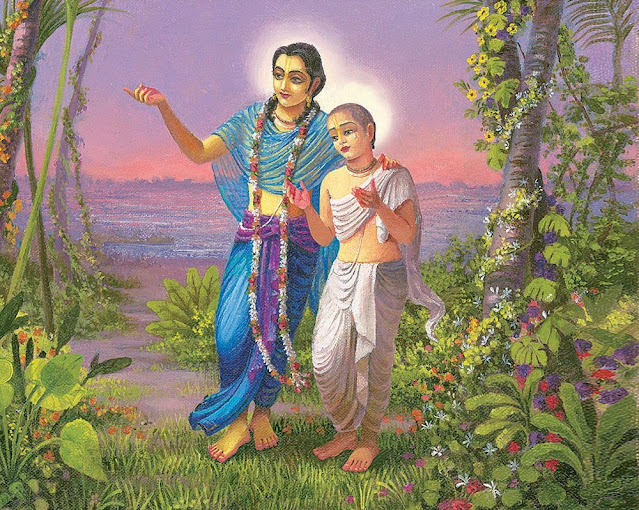Deity Worship
Question: In our Koran it is written that the Supreme Entity has a divine all-conscious form, so we are compelled to accept this fact. However, any image of that spiritual form is material; that is what we call but. The worship of but is not the worship of the Supreme Being. Please tell me your viewpoint on this.
Human beings have different degrees of qualification according to their knowledge and saṁskāra. Only those who can understand pure spiritual existence are competent to worship the pure spiritual form of the Deity. One’s understanding is proportionate to one’s development in this regard.
Those whose spiritual qualification is extremely low cannot understand the pure, spiritual state of existence. Even when such people meditate on the Lord within their minds, the form that they imagine is material, and meditating on a material form within the mind is the same as constructing a form of physical elements, and regarding it as the Lord’s form. That is why it is beneficial for a person on this level of eligibility to worship the Deity. Factually speaking, it would be most inauspicious for the general class of people if there were no worship of Deities. When ordinary jīvas become inclined toward the service of the Lord, they become despondent if they cannot see the Deity form of the Lord before them. In religions where there is no worship of the Deity, members who are on a low level of spiritual qualification are highly materialistic and oblivious to Īśvara, or in a state of distraction. Therefore, worship of the Deity is the foundation of religion for all humanity.
The form of Parameśvara is revealed to the mahājanas through their trance of unalloyed jñāna-yoga, and they meditate on that pure, transcendental form in their hearts, which are purified by bhakti. When the bhakta’s heart is revealed to the world after his continuous meditation, the image of the Lord’s transcendental form is fashioned in this mundane world. The divine form of the Lord, having been reflected in this way by the mahājanas, has become the form of the Deity.
The Deity form is always cinmaya (spiritual and conscious) for those who are on the highest platform of eligibility. Those on the intermediate level see the Deity as endowed with perception and awareness (manomaya). This means that the intermediate devotee has faith that the Deity is conscious of his thoughts and prayers, and accepts his mood of worship. However, the intermediate devotee, unlike the advanced devotee, does not directly perceive the Deity as the spiritual all-conscious form of Bhagavān. Those on the lowest level initially see the Deity as material (jaḍamaya), but in time, the Deity reveals His pure spiritual form to the intelligence purified by spiritual love. Consequently, the Deity form of Bhagavān is suitable to be worshipped and served by all classes of devotees. It is unnecessary to worship an imaginary form, but it is highly beneficial to worship Bhagavān’s eternal Deity form.
The Vaiṣṇava sampradāyas give this provision for people on these three levels of eligibility to worship the Deity. There is no fault in this, for it is the only arrangement by which the jīvas can gradually attain auspiciousness.
- Śrīla Bhaktivinoda Ṭhākura
(An excerpt from Jaiva-Dharma, chapter 11, Nitya-dharma & Idolatry.)





Comments
Post a Comment